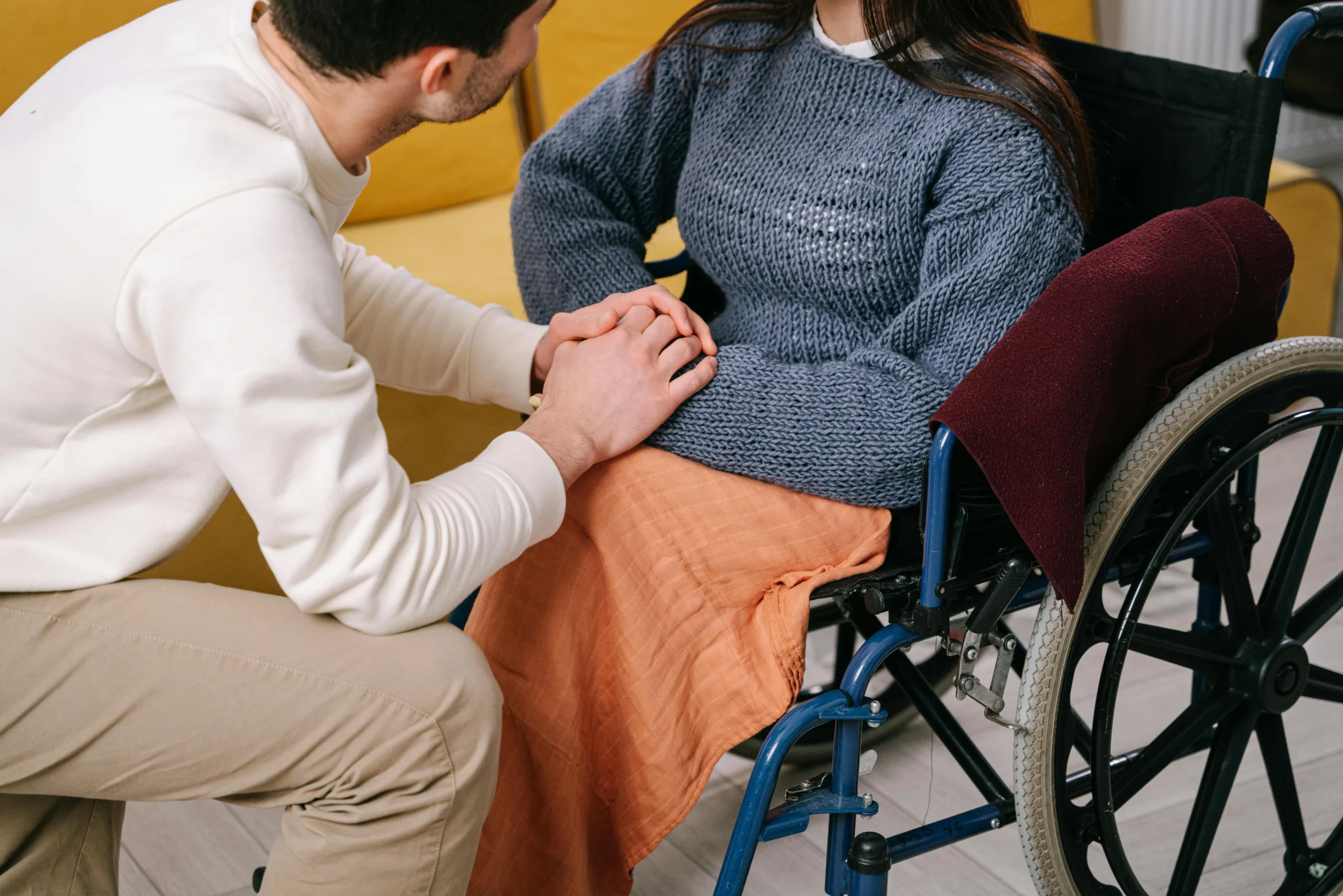Introduction: What Does Trust in Relationships Truly Mean?
Trust in relationships is the invisible thread that holds everything together. It’s not just a feel-good buzzword—it’s the emotional bedrock upon which deep love, meaningful connection, and lasting commitment are built. From my own experiences and countless stories I’ve come across, I’ve seen how trust can either elevate a relationship to its most fulfilling potential or unravel it entirely.
And here’s the thing: trust is fragile. You can spend years building it—brick by brick—and see it shattered in an instant. Whether it’s a lie, a betrayal, or emotional neglect, the damage cuts deep because trust speaks directly to our sense of safety and vulnerability. It’s what allows us to open our hearts without fear of being hurt. When that foundation is shaken, everything else—intimacy, communication, even physical closeness—starts to crumble.
But here’s the good news: trust can be rebuilt. And not just rebuilt, but strengthened in ways that often lead to a deeper, more conscious connection. In this blog, I’ll walk you through not just why trust is so important, but also the step-by-step process of rebuilding it after it’s been broken. You’ll learn about the emotional and psychological roots of trust, how to identify what went wrong, and most importantly, how to come back stronger. So if you’ve ever felt the sting of betrayal, questioned whether healing is possible, or simply want to build a rock-solid foundation in your relationship, stay with me. You’re not alone—and you’re not beyond repair.
The Importance of Trust in Relationships: Why It’s the Foundation of Everything
When it comes to relationship satisfaction, few things are as powerful—or as overlooked—as trust in relationships. It’s more than just believing your partner won’t cheat or lie. It’s the quiet confidence that they’ll show up, emotionally and physically, when it counts. And without it? Even the most passionate love starts to feel unsafe, uncertain, and exhausting.
Psychologists agree that trust is directly linked to long-term relationship success. In fact, studies consistently show that couples with high levels of trust experience greater emotional intimacy, stronger conflict resolution skills, and increased commitment. Trust literally determines how secure you feel in a relationship—and that security affects how you speak, act, and emotionally connect. In short, when you trust your partner, everything else becomes easier. Source: “The Importance of Trust in Building Strong Relationships” by Anna Rostomyan, Ph.D., Psychology Today.
But why is trust such a big deal? Well, think of it this way: trust is what allows vulnerability to exist. And vulnerability is where love lives. Without trust, vulnerability feels terrifying. You start second-guessing your partner’s intentions, withholding your feelings, and spiraling into anxiety. That’s when cracks start to show.
If you’re wondering why relationships are hard, especially when it feels like you’re constantly walking on eggshells, the root cause might just be a breakdown in trust. I’ve seen couples tear each other apart over misunderstandings—not because they didn’t love each other, but because trust had eroded to the point where even small issues triggered emotional panic.
One research-backed insight that stuck with me: the presence of trust reduces the need for constant reassurance. Think about that. When you know your partner has your back, you don’t need to be hyper-vigilant. That peace of mind? It’s priceless. And it’s exactly why trust needs to be nurtured—not taken for granted.
So, whether you’re working to build trust from scratch, rebuild it after betrayal, or simply strengthen what’s already there, understanding the why behind trust is your first step. The rest of this blog will guide you through the how—from unpacking the reasons trust gets broken to rebuilding that deep emotional bond.
What Influences Trust in Relationships?
Trust in relationships doesn’t just appear out of thin air—it’s shaped by who we are, where we’ve been, and how we’ve connected with others. Understanding the psychological and emotional forces behind trust can help you recognize why you might struggle with it or why your partner does. This section dives into the key factors that build—or break—trust over time.
A. Attachment Styles and Their Impact on Trust in Relationships
Let’s start with attachment theory. Whether you identify as secure, anxious, or avoidant, your attachment style has a huge effect on how you give and receive trust in relationships.
- Securely attached individuals tend to trust easily and offer emotional safety.
- Anxiously attached individuals often fear betrayal or abandonment, leading to clingy behavior or mistrust.
- Avoidantly attached individuals, on the other hand, may struggle to rely on others or even reject intimacy altogether.
These patterns usually form in childhood but shape adult relationships in powerful ways. If you’ve ever wondered why a relationship fails even when both partners care deeply, mismatched attachment styles—and how they affect trust—might be the hidden culprit. Source: “Trust in Relationships: A Preliminary Investigation of the Influence of Attachment Styles” by Frontiers in Psychology.
B. Past Experiences Shape Our Trust Blueprint
Another major influence? Your emotional history.
If you’ve experienced betrayal, neglect, or abandonment—especially early in life or in past romantic relationships—it can feel like trust is a risk not worth taking. I’ve spoken to many people who say, “I want to trust, but I just can’t.” That’s not a weakness. That’s trauma—and it needs healing.
Childhood dynamics, parental divorce, toxic exes, or even cultural messages about vulnerability all create your internal trust blueprint. Recognizing these patterns is the first step to changing them.
C. Duration and Quality of the Relationship
Here’s something fascinating: newlyweds often report higher trust levels than couples who’ve been together for a decade. Why? Because over time, trust in relationships is challenged by stress, change, unmet needs, and emotional fatigue.
If trust isn’t intentionally renewed, it can fade. That’s why it’s not just about how long you’ve been together—but how present, consistent, and connected you’ve stayed.
Why relationships are hard sometimes comes down to simple neglect. Trust isn’t a one-time promise. It’s a daily practice.

Common Ways Trust in Relationships Gets Broken
Rebuilding trust starts with understanding how it was broken in the first place. Often, it’s not one catastrophic event—but a slow build-up of wounds, disappointments, and betrayals that chip away at emotional safety.
A. Betrayals That Break Trust
The most obvious example? Infidelity. Whether physical or emotional, cheating devastates trust because it strikes at the heart of safety and exclusivity. But betrayal also includes:
- Secrecy and lying
- Financial dishonesty
- Emotional affairs
- Hiding addictions or habits
These aren’t just mistakes—they’re violations of shared values. And once that breach happens, everything starts to feel uncertain.
B. Emotional Neglect and Inconsistency
Sometimes, trust doesn’t break with a bang—it breaks with silence.
When your partner withdraws emotionally, becomes unreliable, or seems indifferent, it can feel like abandonment. Even if they don’t cheat or lie, the inconsistency is enough to make you question everything.
C. Lack of Accountability and Transparency
Saying “I’m sorry” means nothing without changed behavior. When one person refuses to take responsibility or hides the truth, it undermines any attempts at healing.
D. Repeated Small Breaches
Here’s the hidden danger: little things add up. Canceling plans, breaking promises, or brushing off concerns—if it happens enough, trust slowly erodes.
Managing emotional triggers in romantic relationships becomes even harder when you feel like your voice doesn’t matter. Even well-intentioned partners can cause damage if they aren’t tuned in.
Rebuilding Trust in Relationships: Step-by-Step Process
Rebuilding trust in relationships isn’t a quick fix. It’s a slow, deliberate, and deeply emotional process—but it is possible. The steps below outline what it really takes to heal and reconnect.
A. Acknowledge and Own the Breach
No healing can begin without honest acknowledgment. This isn’t just about saying “I’m sorry.” It’s about taking full responsibility for the hurt you caused.
Minimizing, deflecting, or blaming only reopens wounds. A true apology is vulnerable, specific, and willing to ask, “What can I do to make this right?”
B. Foster Open and Honest Communication
This is where real work begins.
Talk about what happened—not just the event, but how it made each of you feel. Use active listening, validate each other’s pain, and stay emotionally present. No stonewalling. No defensiveness. Read more.
Understanding emotional triggers in long-distance relationships or close partnerships can help prevent repeated patterns of breakdown.
C. Show Consistency and Reliability Over Time
Words mean nothing without follow-through. If you’ve promised to change, then change—repeatedly. Trust is rebuilt through:
- Showing up when you say you will
- Following through on commitments
- Keeping private matters private
Consistency proves you’re serious, even when the other person is still unsure.
D. Provide Empathy and Emotional Support
The hurt partner may cry, lash out, or pull away. Don’t take it personally—see it as part of the healing.
Offer empathy, not solutions. Be patient, even when it’s hard. Trust isn’t logical; it’s emotional. The more your partner feels seen and heard, the safer they’ll become.
E. Exercise Patience and Give It Time
Rebuilding trust in relationships takes longer than most people expect. There’s no fixed timeline. Some days will feel hopeful. Others will feel like setbacks.
Give it time. Celebrate small wins. Don’t rush or pressure each other.
Healing after a breakup when you still love them or after betrayal is possible—but only when both people commit to the process.
F. Identify and Address Root Issues
Trust is rarely the only issue. Look deeper.
Is there unresolved trauma? Are needs going unmet? Is there a communication breakdown at the core?
This is where couples therapy can be a game-changer. Therapy techniques for emotional triggers in couples counseling help uncover hidden patterns and offer real tools to rebuild connection.
If you’ve reached a point where conversations only end in blame or withdrawal, it might be time to bring in a third party. Therapy isn’t a sign of weakness—it’s a powerful tool for healing.

Proven Strategies to Strengthen Trust in Relationships and Deepen Connection
Once you begin the process of rebuilding, the next step is strengthening what you’ve repaired. Because let’s face it—trust in relationships isn’t just about avoiding betrayal. It’s about deepening connection, emotional safety, and shared joy. The good news? Small, intentional habits can make a massive difference.
A. Spend Intentional Quality Time
It’s not just about being in the same room—it’s about being fully present.
Put down your phone. Look each other in the eye. Go for a walk. Cook dinner together. These shared moments, though simple, create the emotional glue that bonds people together.
Regularly carving out time together also helps in healing from emotional triggers in past relationships, because it fosters a sense of security that might have been missing before.
B. Practice Active Listening and Emotional Presence
Listening isn’t just about hearing words. It’s about tuning in emotionally—catching the tone, the pauses, the unsaid fears.
When your partner opens up, don’t interrupt. Don’t fix it. Just listen. Reflect their feelings back. Show them you get it.
This practice alone can reignite emotional intimacy and rebuild trust in relationships, especially after a period of emotional distance.
C. Express Daily Gratitude and Appreciation
It sounds simple, but saying “thank you” regularly can transform a relationship.
Gratitude builds goodwill. It reminds both partners of what’s working—even in hard seasons. Whether it’s appreciating emotional support, small chores, or just showing up after a long day, acknowledgement matters.
D. Create and Pursue Shared Goals
Couples who work toward common goals—whether it’s saving for a trip, raising children, or even starting a business—tend to feel more united.
These shared missions create a “we’re in this together” mentality. That unity naturally strengthens trust in relationships, because both people feel invested in the same future.
E. Laugh and Have Fun Together
Never underestimate the power of play. Laughing, being silly, or sharing inside jokes fosters emotional safety.
In fact, having fun is therapy—especially after conflict. It helps release oxytocin, the bonding hormone, which can gently rewire your brain to associate your partner with joy again.
How Relationship History Affects Recovering Trust in Relationships
Have you ever noticed that long-term couples sometimes bounce back after major betrayals more successfully than newer couples? That’s not just love—it’s science.
A. The Advantage of Long-Standing Relationships
The more shared history you have, the more emotional equity you’ve built. That means you’ve weathered storms, celebrated wins, and accumulated years of emotional investment.
When trust in relationships is broken, these past positive experiences can buffer the damage. You might remember the good times and say, “This person hurt me—but they’ve also loved me well.”
That kind of memory creates hope—and hope is the spark for recovery.
B. The Healing Power of Shared Positive Memories
Revisiting your shared highlights—vacations, late-night conversations, moments of joy—can reawaken emotional connection.
It’s not about ignoring the betrayal. It’s about remembering why the relationship is worth rebuilding. That’s how you find the strength to keep going, even when it’s hard.
The Psychology Behind Trust in Relationships
Understanding how trust in relationships functions in the brain can actually help us be more patient—with our partners and ourselves.
A. Cognitive vs. Emotional Trust
There are two levels of trust:
- Cognitive trust is based on logic. “I believe you’ll follow through because you always do.”
- Emotional trust is deeper. “I feel safe with you. I know you won’t hurt me.”
After betrayal, cognitive trust might return faster—you see change, you acknowledge effort. But emotional trust takes longer because it’s rooted in the heart, not the head. Source: “3 Types of Trust Essential for Romantic Relationships” by Jeremy Nicholson, M.S.W., Ph.D., Psychology Today.
B. How the Brain Processes Trust and Betrayal
When trust is broken, the brain goes into protective mode. The amygdala—the fear center—becomes hyperactive. You feel on edge, guarded, suspicious. This is especially common when you’re dealing with emotional triggers that cause relationship conflicts.
But with time and positive reinforcement, the brain can rewire. That’s why consistency and emotional safety are everything in the rebuilding phase.
C. The Neuroscience of Forgiveness and Safety
Forgiveness isn’t just a moral decision—it’s a neurological shift. Studies show that repeated positive interactions (eye contact, affection, reassurance) activate the brain’s bonding and calming circuits.
With enough repetition, the brain starts to believe, “Maybe I can trust again.”
Challenges in Building Trust in Relationships
Let’s be real. Rebuilding trust in relationships is not a straight line—it’s a messy, emotional, stop-and-start journey. And the challenges don’t mean you’re doing it wrong. They mean you’re human.
A. Lingering Doubts and Emotional Triggers
Even after progress, old fears can pop up:
- “Can I really trust them again?”
- “What if this happens again?”
These thoughts are normal, especially if you’re still managing emotional triggers in romantic relationships. But if left unspoken, they can create silent tension. That’s why continued communication is so important.
B. Fear of Vulnerability
Rebuilding trust means risking again—risking being hurt, risking being misunderstood, risking not being believed. Both people feel this fear.
The hurt partner fears further betrayal. The one trying to make amends fears constant judgment. Navigating this fear with compassion and patience is essential.
C. External Pressures and Social Influence
Friends and family often mean well—but they can complicate healing. Maybe they urge you to leave. Or maybe they guilt-trip you for not leaving.
Remember: This is your journey. Their opinions may come from love, but they don’t live in your relationship.
Conclusion: Why Trust in Relationships Is Worth Rebuilding
Let’s be honest—trust in relationships can feel like a fragile thread, especially after it’s been broken. But here’s the truth I’ve learned both personally and through working with others: that thread can be rewoven. And not only can it be rebuilt, but it can become stronger, more honest, and more resilient than ever before.
Rebuilding trust isn’t easy. It takes time, accountability, emotional safety, and a lot of open-hearted effort. But it’s worth it. Why? Because when trust in relationships is restored, it creates a powerful space for growth, closeness, and genuine love.
You’ve now learned what breaks trust, how to rebuild it, and what strengthens it for the long haul. And if you’ve ever wondered why relationships are hard, or why a relationship fails, trust—or the lack of it—is almost always at the root.
But the good news? You have the tools. You have the awareness. And whether you’re healing from the past or building something new, the foundation you lay today can become the bond that holds your future.

FAQs About Trust in Relationships
Q1. What causes a lack of trust in relationships?
A. A lack of trust in relationships often stems from betrayal, emotional neglect, repeated lies, or unresolved emotional triggers from the past.
Q2. How long does it take to rebuild trust in a relationship?
A. There’s no set timeline—rebuilding trust depends on the depth of the breach, the couple’s history, and how consistently both partners work to heal.
Q3. Can trust be fully restored after infidelity?
A. Yes, with open communication, consistent effort, and sometimes therapy techniques for emotional triggers in couples counseling, many couples do recover.
Q4. How do I rebuild trust if I broke it?
A. Start by owning your mistake, apologizing sincerely, and showing consistency and emotional support over time to regain your partner’s faith.
Q5. Is therapy helpful for rebuilding trust?
A. Absolutely—couples counseling helps identify root issues and teaches how to manage emotional triggers that cause relationship conflicts.

